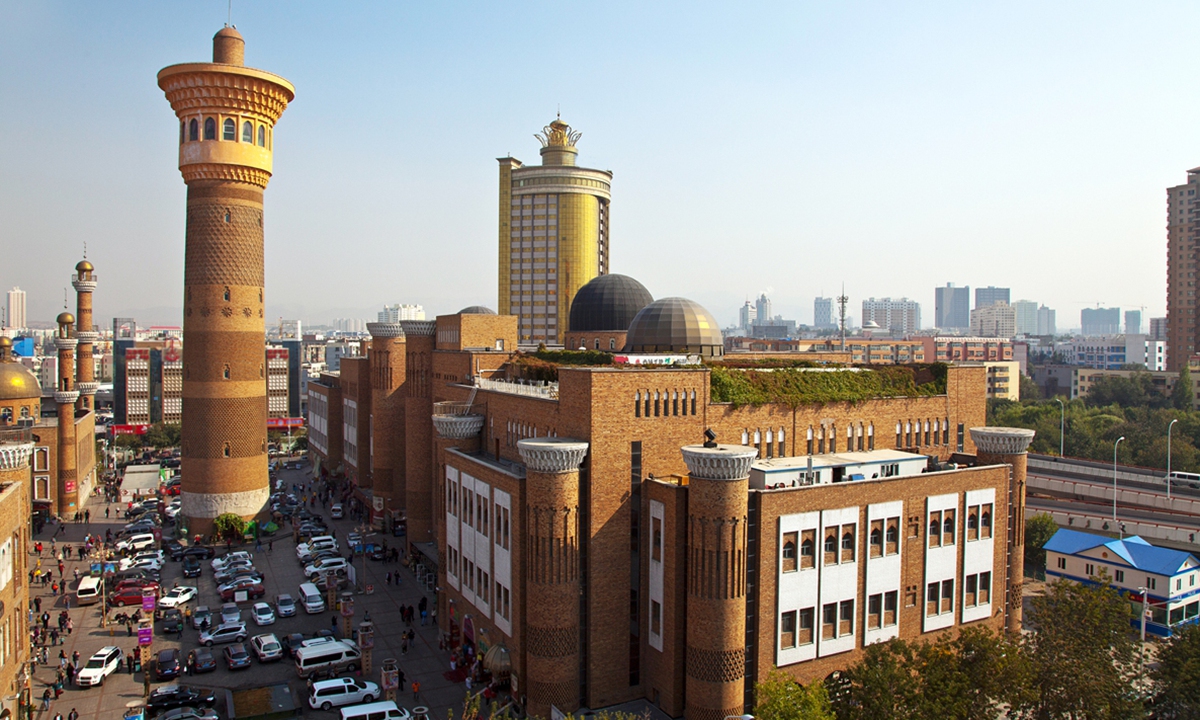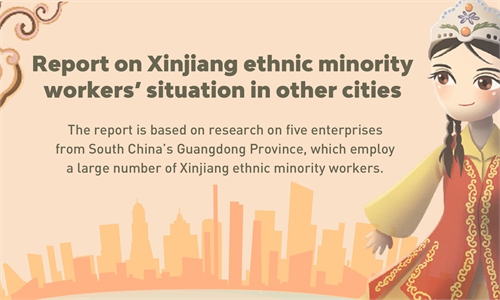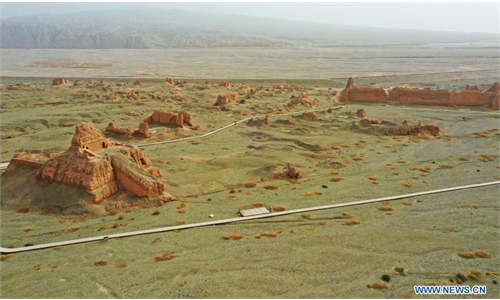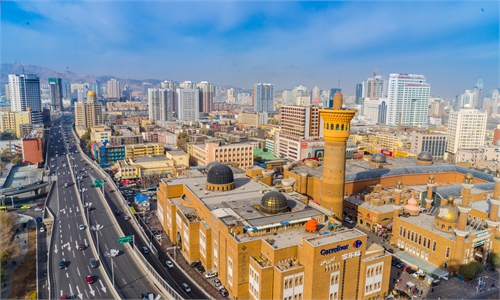
Xinjiang. File Photo: VCG
The US and West are viciously attacking the governance of the Xinjiang Uygur Autonomous Region of China. Their motive is quite deplorable. Some Western elites have maliciously misled public opinion by cooking up false narratives about the "persecution and suppression" of Uygurs in Xinjiang. They are attempting to disrupt the agenda and rhythm of China's continuous development.From the perspective of China, there are also points worthy of summarizing and reflecting on. Violent terrorist attacks almost went out of control in Xinjiang several years ago. Some terrorists even killed innocents at the Kunming Railway Station and crazily drove into a crowd of people at Tiananmen Square. Probably out of goodwill to prevent panic and maintain ethnic unity, the Xinjiang governance team at that time didn't want media to excessively report the Xinjinag's internal turbulence. After every severe violent terrorist accident, they wished to downplay it. Therefore, some terrorist attacks weren't publicized. This led to an inadequate understanding of the real situation in Xinjiang by outsiders.
Two years ago, I visited an internal anti-terrorism exhibition in Hotan, Xinjiang. I was really shocked to see one wall full of the headshots of public security officers who had lost their lives in anti-terrorism actions. There were also pictures of severed heads and charred bodies of the victims of terrorist attacks. Those situations should have been made public to society.
Looking back, if those serious attacks had been properly notified to the outside world, both Chinese and international societies could have been more mentally prepared for the counter-terrorism and de-radicalization measures that were enacted by the autonomous region government a few years ago. The attempts to downplay those attacks now have been maliciously used by anti-China forces in the West. They label Xinjiang's de-radicalization measures as a well-planned "persecution" for the purpose of "genocide."
For example, terrorist attacks happened in Shache County, southern Xinjiang, on July 28, 2014. Terrorists set up several roadblocks on the Bachu-Shache railway, intercepted all the passing vehicles, and crazily massacred the Han Chinese in the vehicles. They also killed Uyghur people who did not cooperate with them. This resulted in a large number of deaths and injuries of innocent civilians. The local government reported that in the terrorist attack, 37 civilians were killed (35 Han people and two Uyghur people). Insiders estimated that the actual situation is much more serious than what was reported.
China always works to seek truth from facts. By seeking truth from facts, we have solved one real problem after another, made the country stronger, and improved people's livelihood. Some local governments are reluctant to report real problems to the public, preferring to show the good side of the situation. In the short term, this may help promote the work and reduce the cost of governance. But in the long term, it is likely to store up trouble for the future. We need to have the courage to face up to our own problems. Public reports from each period should be in line with the larger situation so it is aligned with our path to seek truth from facts. By summarizing things over a longer period of time, we will be able to find that doing so will bring overwhelming benefits.
The author is editor-in-chief of the Global Times. opinion@globaltimes.com.cn





